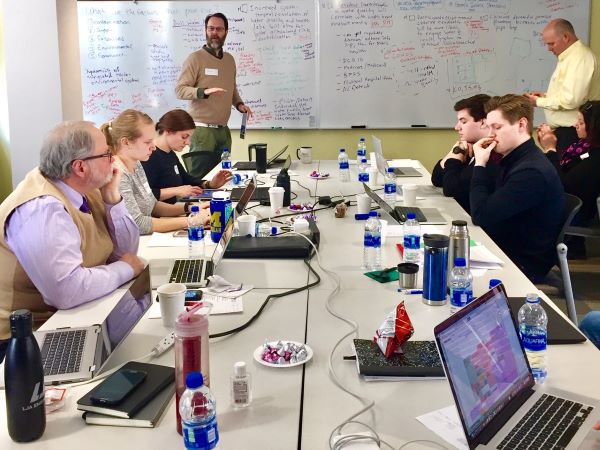WSU receives NSF award for multidisciplinary research of public health and water systems
Wayne State University was awarded a four-year, $1.57 million grant from the National Science Foundation to advance understanding of how public health and water drinking systems assess risks to safe water quality and the impact on public health when access to clean drinking water is interrupted. The premise of the study is that these systems are interdependent and how they communicate and handle water disruptions from day-to-day events, disruptive weather or human-induced disasters can reflect system failures as well as learning. A multidisciplinary team is working to understand the relationship between public health and water systems, and how the two can interact to enhance resilience and sustainability. The project began in 2018 and is based on previous research done in Wayne County and Flint, Michigan.
The Water and Health Infrastructure, Resilience, and Learning (WHIRL) research project is led by Shawn McElmurry, Ph.D. (College of Engineering) and Matthew Seeger, Ph.D. (College of Fine, Performing, and Communication Arts) and includes co-investigators Joanne Sobeck, Ph.D. and Richard Smith, Ph.D. from the School of Social Work, Paul Kilgore, M.D., (College of Pharmacy and Health Sciences) and Kristin Taylor (College of Liberal Arts and Sciences). The project also includes researchers from the University of Michigan and the University of North Carolina at Chapel Hill.
The multidisciplinary lens allows researchers to assess the resilience and sustainability of water and public health systems from multiple perspectives. In turn, the complexities of these systems can be examined more critically. The research team has three primary objectives: 1) Identify the range of risks and disruptions in water and public health systems in urban areas and assess the extent to which the systems possess characteristics; 2) Evaluate how the public engages with drinking water and public health systems; and 3) Model how drinking water and public health systems respond to water system disruptions.
Methods of research include interviews with representatives from water utilities and public health agencies, and comparative water testing in select cities in Michigan, Ohio, and North Carolina. A national survey will also be administered to assess how systems coordinate and communicate, which actions help systems learn the most after past water system disruptions, and what enhances an organization's ability to bounce back (resilience) after a water system disruption. Data will also be used to develop models that will act as early warning systems of water health risks and enhance communities' resilience.

Results of the project will be disseminated to academic, engineering, and health communities through publications and workshops. Overall, WHIRL aims to improve system responses to water disruptions that will ensure access to cleaner, safer drinking water in all communities, including those at greatest risk.
Community and professional partners include: Water Research Foundation; National Association of County and City Health Officials; Great Lakes Water Authority; City of Flint, MI; Genesee County and Wayne County Health Departments; City of Toledo, OH; In-Situ Inc.; and American Indian Mothers, Inc.
Learn more about the National Science Foundation
Wayne State University is one of the nation's pre-eminent public research universities in an urban setting. Through its multidisciplinary approach to research and education, and its ongoing collaboration with government, industry and other institutions, the university seeks to enhance economic growth and improve the quality of life in the city of Detroit, state of Michigan and throughout the world. Learn more about Wayne State University Research.